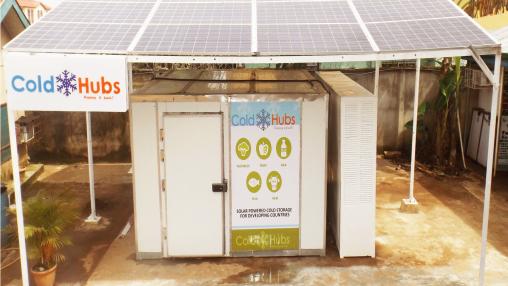
Solar-Powered Cold Storage Technologies and Agrifood System Modernization: Evidence from Nigeria
Food loss and food waste continue to pose a serious challenge for sustainable agricultural growth and food and nutrition security around the world. In many developing countries, lack of modern storage and transportation infrastructure plays a large role in food loss and waste, particularly for more nutritious and profitable but perishable foods like fruits and vegetables.

Bringing back neglected crops: A food and climate solution for Africa
As the food and climate crises continue to cause suffering around the world, one under-appreciated solution—neglected crops—could be a powerful tool to alleviate both crises in one of the worst affected regions: Africa.
Ukraine One Year Later: the impact of the war on agricultural markets and food security
One year after Russia invaded Ukraine, the war continues to affect global markets. World stock levels remain tight, and while prices have fallen back to pre-war levels, much uncertainty remains. This seminar will examine how the war has affected global markets, particularly wheat markets. Speakers will discuss the war’s impacts on Ukraine’s producers, wheat buyers and importers in the MENA region, and households in Egypt and Yemen. In addition, the discussion will address export restrictions and sanctions that have exacerbated price levels and volatility.
Introducing pro-WEAI complementary indicators for nutrition- sensitive agriculture and market inclusion projects
The Women’s Empowerment in Agriculture Index (WEAI) is the first-ever direct measure of women’s empowerment and inclusion in the agriculture sector. In response to demand from designers and implementors of agricultural development projects, IFPRI developed the project-level Women’s Empowerment in Agriculture Index (pro-WEAI) to track the impacts of these projects on women’s empowerment.
Taking Stock of Africa’s Agrifood Processing Sector: Key findings of the 2022 ReSAKSS Annual Trends and Outlook Report
A high-performing, resilient, and competitive agrifood processing sector can create remunerative employment opportunities, link producers to growing and lucrative urban markets, and help to ensure that consumers have access to sufficient and healthy food. Africa’s food processing sector is growing in response to growing demand for processed and high-value foods in the continent. However, processing firms, many of them small and informal enterprises, still face serious constraints.
The Effects of the Ukraine/Russia Crisis on Food Processors and Building Resilience to Crises
The Russian war in Ukraine is hitting the global food supply chain and impacting prices of raw material (largely wheat), fertilizer, and fuel, which limit production, increase costs and depress sales. This has shaped manufacturers’ supply chain strategies and has greatly affected Africa’s food processing industry, despite being far from the conflict zone.
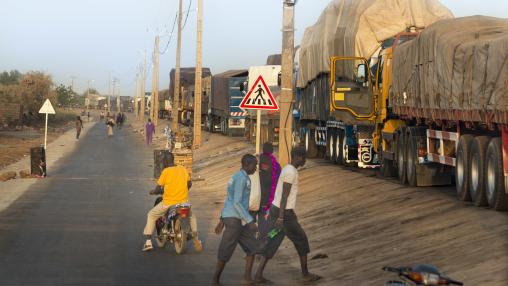
New Database Provides Improved Look at Intra-Regional Trade in West Africa
Trade plays a critical role in economic development and agricultural transformation. However, reported intra-regional trade in Africa south of the Sahara (SSA) has historically been quite low, potentially impacting poverty, livelihoods, and food security in the region. Over the past decade, policymakers have set out to change this, signing the 2014 Malabo Declaration that aims to triple intra-African trade in agricultural goods by 2025 and establishing the African Continental Free Trade Agreement to remove barriers to cross-border trade.
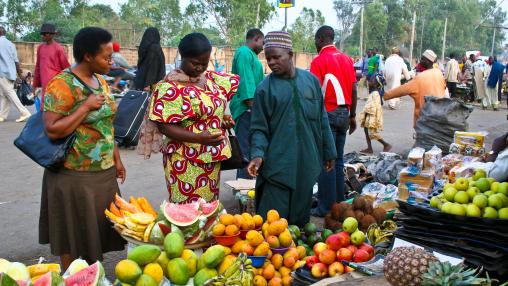
West Africa faces mixed food security impacts from the Russia-Ukraine conflict
Food security in West Africa has been deteriorating since 2015: The proportion of the population affected by undernutrition rose from 11.5% in 2015 to 18.7% in 2020, a total of 75.2 million people. Now, like the rest of the world, the region faces rapidly growing impacts from Russia’s war in Ukraine, including spiking food prices and disruptions in markets for cereals and other commodities, including fertilizers and fuels. What are some of the war’s likely effects on West Africa?
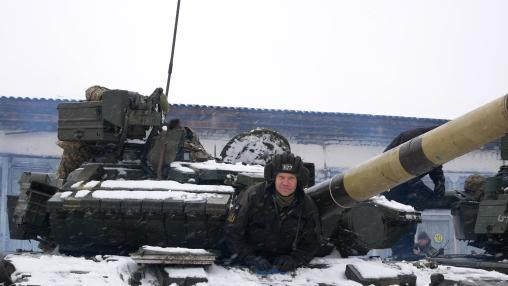
How will Russia’s invasion of Ukraine affect global food security?
The unfolding crisis in Ukraine has roiled commodity markets and threatens global food security. Ongoing fallout from the COVID-19 pandemic and other factors have already driven up food prices. Poor harvests in South America, strong global demand, and supply chain issues have reduced grain and oilseed inventories and driven prices to their highest levels since 2011-2013.
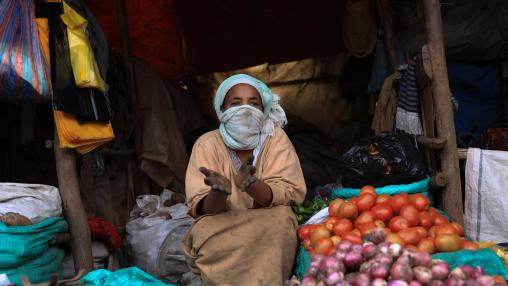
Value Chain Resiliency and COVID-19: Results from Ethiopia
As Ethiopia’s population has become increasingly urbanized over the past decade, more and more households have come to rely on markets, rather than their own farms, for their daily food needs. This dependence means that well-functioning agri-food value chains have become increasingly vital to food security for much of the population.